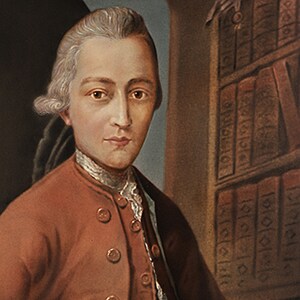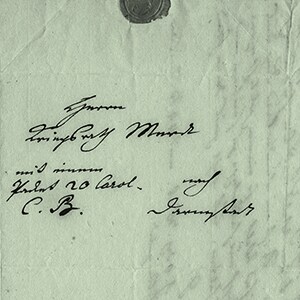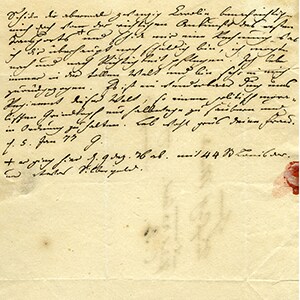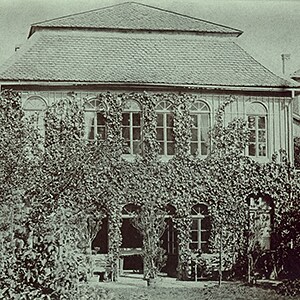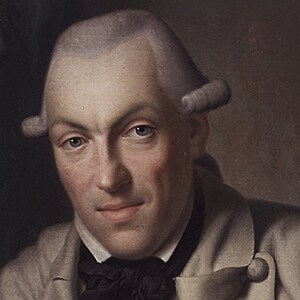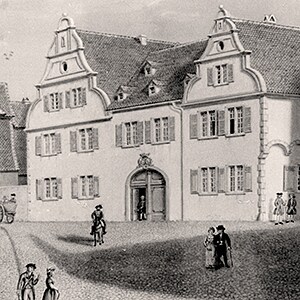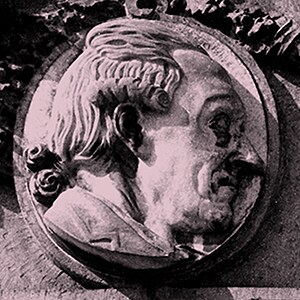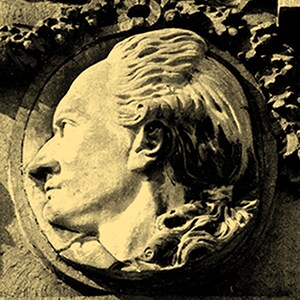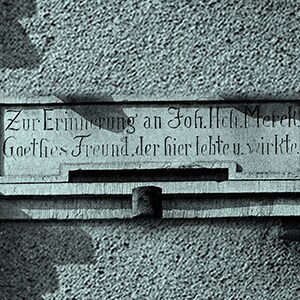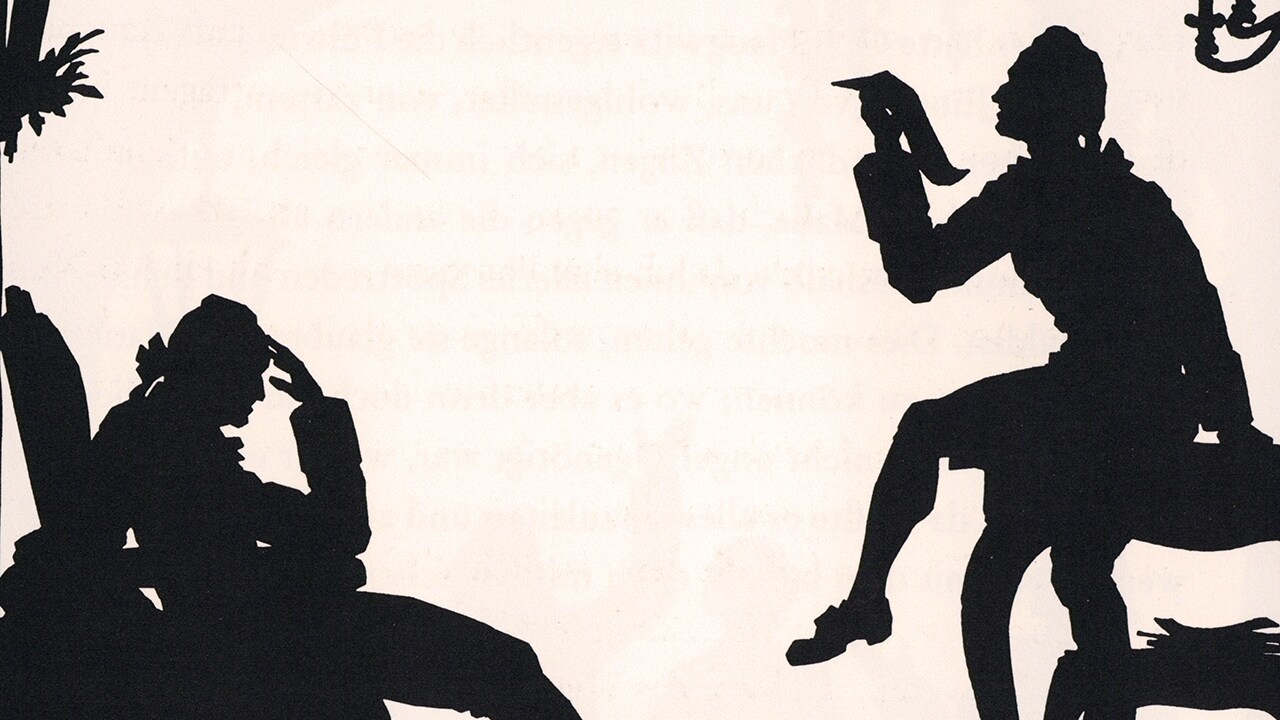
»Your endeavor, your unswerving aim, is to give a poetic form to reality.«
Johann Heinrich Merck writing about Goethe, 1775
In the 18th century, the Merck family is characterized by more than just successful pharmacists. Johann Heinrich, born in 1741, is a writer, natural scientist and connoisseur of art and literature.
Contrary to his personal pursuits, his career at the Darmstadt court remains throughout his life a rather empty professional existence in the field of finance, as he himself attests. This contrasts sharply with his multifaceted talents and universal education. Yet posterity will remember Johann Heinrich Merck above all as a friend to the young Goethe. Is he the person on which the character of Mephisto in »Faust« is based?
To his family and friends, Johann Heinrich is a sensitive conversationalist. However, over time, his insights tend more and more towards pure negation. In addition to this, he has a sharp intellect that earns him the unfortunate sobriquet of »Mephistopheles«, in large part due to Goethe. If anything, his character is at its heart defined by a tendency towards strict moral standards.
He is close friends with Johann Wolfgang von Goethe. The two men meet each other for the first time in December 1771 in Frankfurt am Main. Johann Heinrich is recruiting employees for the »Frankfurter gelehrte Anzeigen«, a literary journal for which he is temporarily chief editor. Eight years older than Johann Wolfgang, Merck takes the young man under his wing in a certain way, earning him Goethe’s deep gratitude. After their initial encounters, Goethe writes to Johann Gottfried Herder and describes Merck as »a person who inspires feelings to flourish and thoughts to take flight«. Their friendship is at its most involved from 1771 to 1775, the time period during which the relationship has the greatest impact on Goethe in particular.
In addition to this, Merck’s house is the focal point of a literary clique, to which he introduces Goethe. Known as the »Darmstädter Empfindsamen« (Darmstadt Sentimentals), this group of artists is led by Johann Heinrich, who transforms Goethe into a star. Despite occasional overly critical assessments, Merck steadfastly supports young Goethe’s development, advising him on his writing, providing opportunities to write reviews and helping him obtain his first royalties. Merck recognizes Goethe’s genius, motivates him to complete »Götz von Berlichingen«, and has the play printed and published at his own expense.
Even though Goethe’s move to Weimar in 1775 gradually lessens his friend’s influence, Goethe still attests that Johann Heinrich Merck had »the greatest impact« on his life. Merck first acts as a mentor to him by critiquing his works and publishing his early texts, then later, in the 1780s, goes on to mentor him in the natural sciences.
Young Goethe praises his exacting friend Merck, writing that »he is the only person who fully comprehends what I am endeavoring to do«. Several letters received by Johann Heinrich Merck from Goethe can be found in the company Archives, which is added to the Hessian state register of nationally valuable archives in 1966.
Johann Heinrich Merck is said to have spent the early years of his marriage in the »Goethehäuschen« (Goethe cottage) located on the Merck family property on Rheinstrasse 9 in Darmstadt, with the nickname implying that some of the encounters with Goethe may have taken place here as well. Merck resides in the »Persiussche Haus« in Darmstadt for the last ten years of his life.
In 1789, Johann Heinrich Merck acquires an estate with ten rooms, an administrative wing, stables, and a »pleasure garden« in Arheilgen, a suburb of Darmstadt. In 1894, a memorial plaque by Ludwig Habich, a Darmstadt-based sculptor, is added to an adjacent building with an inscription reading: »In memory of Joh. Hch. Merck, Goethe’s friend who lived and worked here.«

